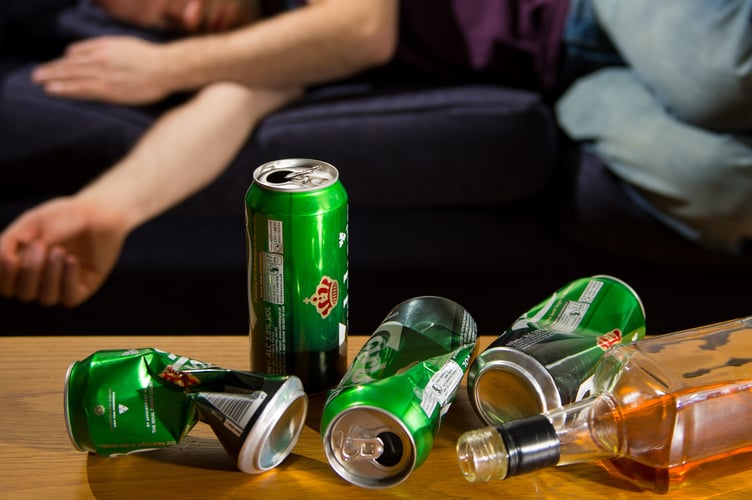Dozens of people suffered unnecessary 'deaths of despair' in Torridge over a three-year period, new analysis has found.
The team behind the study called for greater action "to prevent deaths from drugs, alcohol and suicide", and said the Government must improve the inequalities found across England.
Researchers from the University of Manchester analysed coroners' court records from 2019 to 2021.
Their analysis showed 46,200 people lost their lives due to drugs, alcohol or suicide in England – the equivalent of 42 people per day.
In Torridge, there were 22 deaths linked to alcohol, 15 caused by drugs and 18 suicides reported during the same period – which includes the start of the coronavirus pandemic.
In total, there were 55 'deaths of despair', a collective term for deaths from these causes.
It meant the area was ranked 149th out of 308 local authorities in England with a mortality rate of 32 deaths per 100,000 people.
Blackpool experienced the highest rate of deaths of despair, with 83.8, followed by Middlesbrough and Hartlepool. Of the 20 areas with the highest rates, 16 were in the north of England. Barnet, in north London, had the lowest rate at 14.5, followed by Bromley in Greater London and Thurrock in Essex.
The study found local authorities with higher proportions of unemployment, white British ethnicity and people living alone had higher mortality rates.
Urban and economically inactive areas also tended to have higher rates.
Lead author Christine Camacho said specific public health interventions and more wide-reaching and faster levelling up across England are needed to tackle the underlying inequalities which lead people to die from despair.
Lee Fernandes, lead therapist at alcohol treatment provider the UK Addiction Treatment Group, called the UK a "nation of binge drinkers", which led to "unhealthy drinking habits across almost all generations".
He added alcohol's legal status gives it less "stigma" than other drugs, meaning medical professionals may not take excess drinking as seriously.
"Until that misconception is addressed, more people will continue to die from alcohol," he added.
Nat Travis, national head of service at health and social care provider Turning Point, said the research "highlights the need for continued government investment into treatment services".
"What we often see, are more people coming to us at a later stage when they are far more unwell, which makes it harder to undo the damage that's already been done due to substance use," she said.
"This is why it’s so important that services are well-funded and have the resources to be able to access all areas."
A spokesperson for the Department for Health and Social Care said: "The Government is committed to narrowing the gap in healthy life expectancy by 2030 and to increasing healthy life expectancy by five years by 2035.
"Spending on mental health has increased by more than £4.5 billion in cash terms since 2018-19.
"We’ve published a 10-year plan for tackling drug and alcohol-related harms and are investing an extra £532 million between 2022-23 to 2024-25.
"Our ambitious plans for a smokefree generation will also save tens of thousands of lives."




